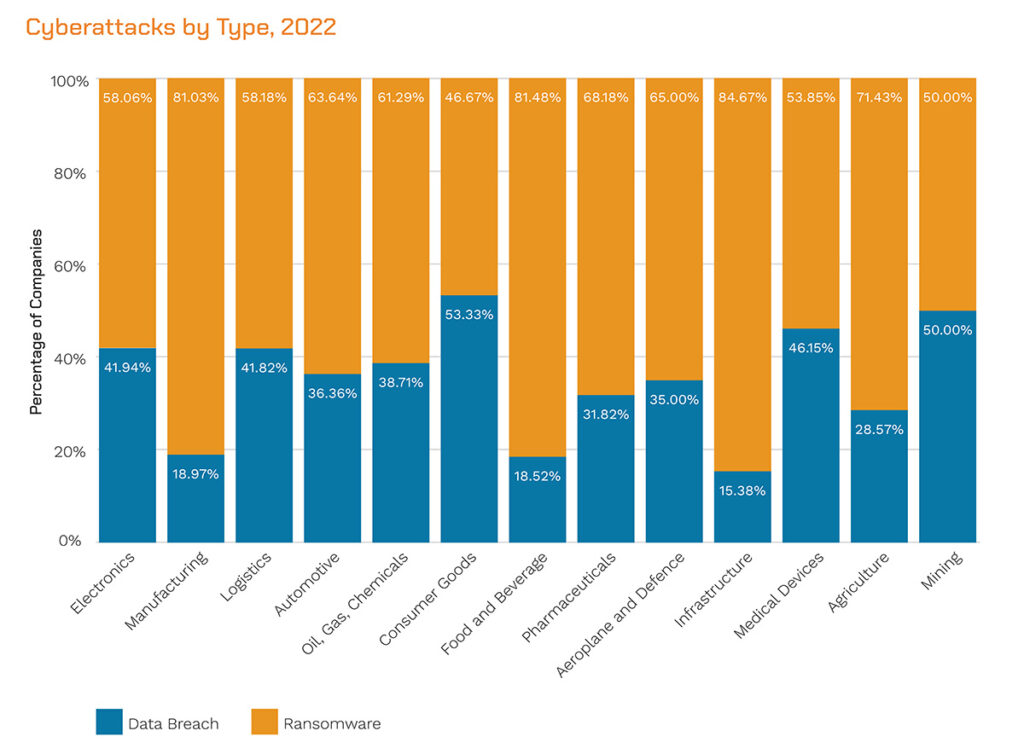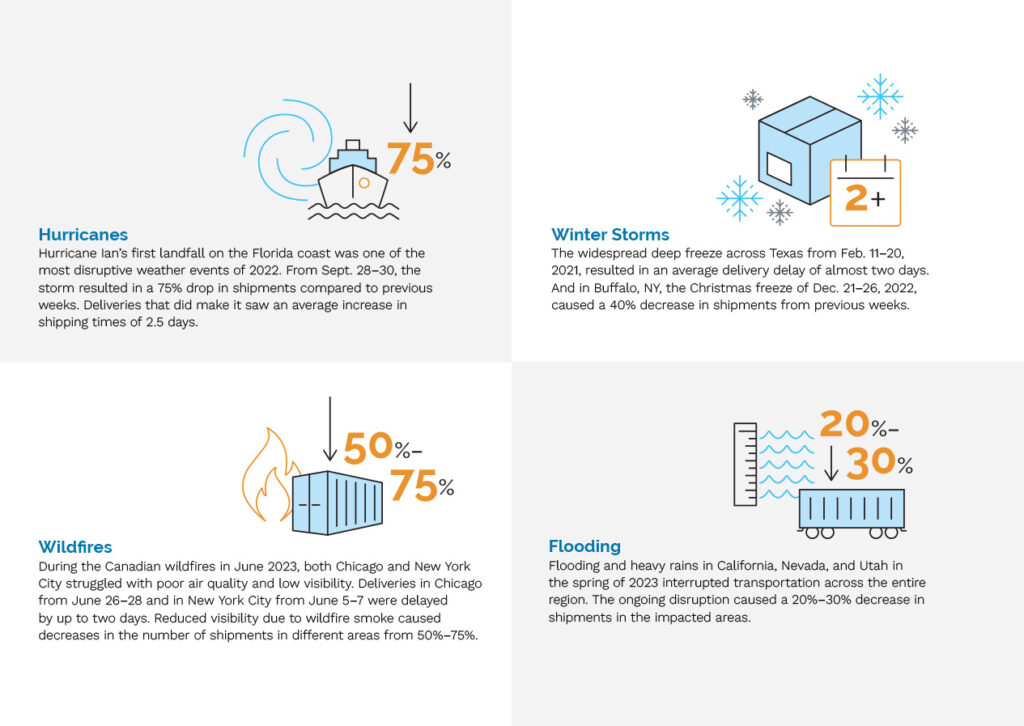Given their unpredictable nature, disruption risks demand that a supply chain operation have robust contingency planning to ensure rapid and effective responses.
Operational risks: efficiency and reliability
Operational risks are integral to the logistics and transportation sector’s day-to-day functioning. Equipment failure, for instance, can result in substantial downtime and delay. This can be due to aging infrastructure, insufficient maintenance, or unforeseen malfunctions. These failures can cost companies up to a 54% decline in sales, 46% decrease in market share, and a 39% fall in share price, according to a survey from the Institute of Supply Chain Management.
Capacity issues, whether it’s insufficient warehouse space or inadequate fleet size, can lead to missed deadlines and canceled shipments. And inefficient route planning, often a result of poor communication or lack of access to real-time data, can lead to increased fuel usage and wasted time. For example, a company that chooses refrigerated transportation for goods simply based on the calendar and not on actual meteorological forecasts may be spending more than they need. Or a shipment routed through a port with a high risk of looming labor action or political unrest could be delayed indefinitely.
To maintain efficiency and reliability, operational risks require robust monitoring systems and proactive risk management.
Compliance risks: laws and regulations
Given that logistics and transportation often involve crossing international borders, the importance of regulatory compliance cannot be overstated. This can mean making sure that shipment contents adhere to environmental laws like the European Union deforestation bans. Or ensuring the legal and safe handling and transportation of goods like medicines. Compliance also includes complying with labor regulations like the U.S. Uyghur Forced Labor Protection Act. Non-compliance can result in severe penalties, legal action, and brand damage.
Compliance issues from a supplier halfway across the globe can disrupt a company’s supply chain with a distant ripple effect that begins far before managers are even aware of the risk. Therefore, businesses need to stay abreast of all relevant laws and regulations, and invest in effective compliance management systems.
Cybersecurity risks: protecting digital assets
With critical data and operations increasingly moving online, cybersecurity risks have become a significant concern. Cyber-attacks can compromise confidential data, disrupt operations, and result in substantial financial losses. Ransomware is on the rise, especially in the electronics, logistics, and manufacturing industries. Everstream’s data finds that 38% of ransomware attacks led to operational shutdowns.
These shutdowns have long-term impact –if a company pays a ransom, there is no guarantee that the cyber attacker withdraws from the company’s system. If the company doesn’t pay, it must rebuild its system from the ground up and replicate missing data.

Figure 2: Cyber-attacks against all industries are growing in importance as a logistics and transportation risk.
Logistics and transportation companies must invest in robust cybersecurity measures, such as firewalls, encryption, and intrusion detection systems, to protect their digital assets.
Financial risks: market fluctuations and insolvencies
Financial risks in logistics and transportation primarily arise from volatile market conditions. Fluctuations in fuel prices, like the ups and downs in fuel price and availability in the EU after the Ukraine War, can significantly affect transportation costs.
Similarly, changes in currency exchange rates, tariffs, and duties can increase the cost of international logistics. Furthermore, financial insolvencies in a company’s sub-tier supply network can catch operations by surprise. European businesses faced widespread financial struggles after post-COVID government subsidies ended, causing impact to manufacturing in particular. These financial risks can squeeze margins and affect profitability across supply networks.
Understanding these risks and implementing effective risk management strategies are essential for any business involved in logistics and transportation. By anticipating potential problems, adopting proactive measures, and responding swiftly and effectively to disruptions, businesses can safeguard their operations and ensure the smooth and efficient running of their supply chains.


